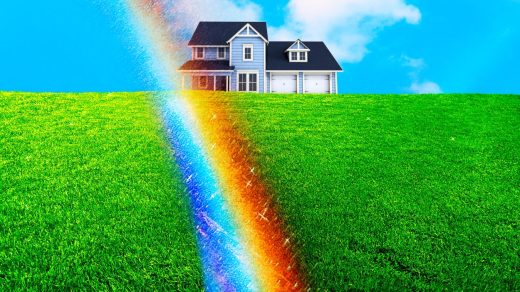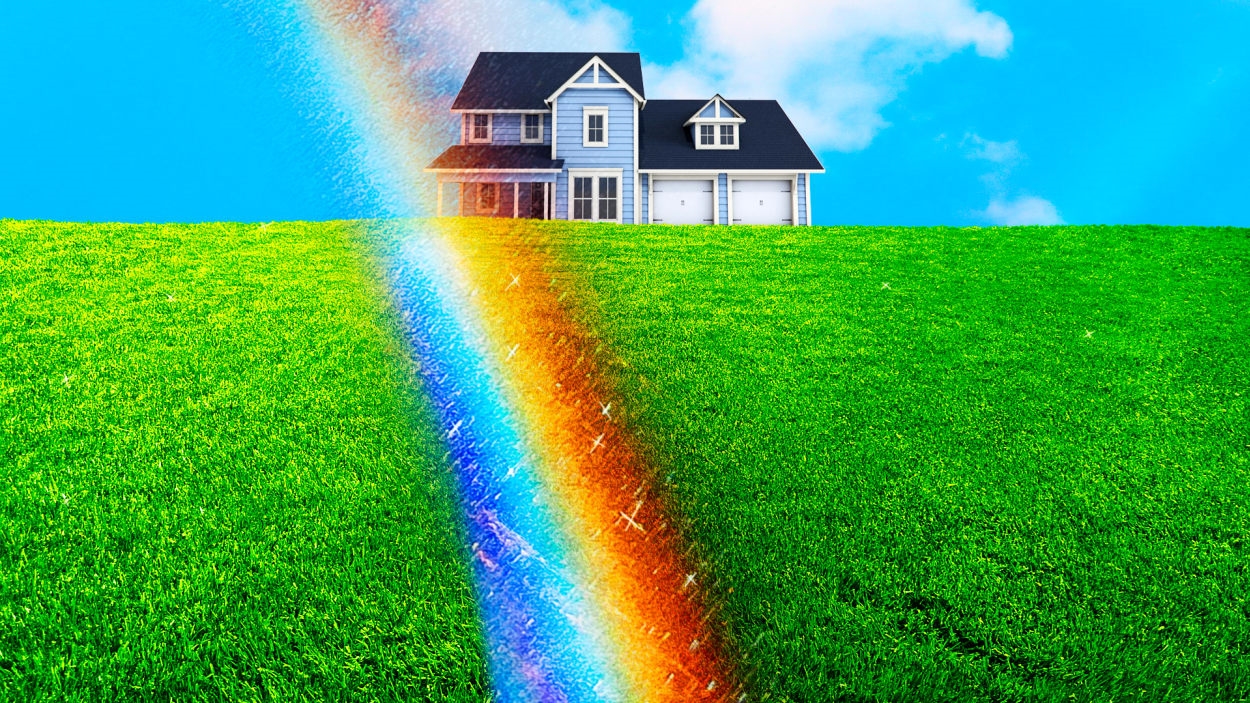This guy knows the secret to a greener, cleaner lawn
By Michael Callahan
There may be perhaps no more definitive marker of the American Dream than the viridescent lawn. Whether measured in inches or acres, a lush, verdant carpet of emerald-green grass broadcasts a particularly powerful message about the pride that comes from home ownership. Even if the inside of your house looks like it belongs on an episode of Hoarders, a shimmering lawn telegraphs, I’ve made it. “It is the way you express yourself to your neighbor,” says Coulter Lewis. “It shows the kind of citizen you are.”
The U.S. yard is the nation’s third-largest crop by land area, comprising some 40 million acres. It’s perhaps no wonder, then, that Americans spend some $45 billion a year trying to conjure bucolic grounds resembling Augusta National, only to—for the most part—fail miserably. “A person goes to the home improvement store, they look at the shelf, and they’re hoping they just don’t kill their lawn,” says Lewis, the cofounder and CEO of Sunday, which is now aiming to demystify lawn care for the largely clueless cadre of 90 million Americans trying to turn their scratchy patches of earth into Shangri-La. “Their level of confidence is zero,” he notes. “They buy a bag of stuff, and the person at the checkout says, ‘Good luck with that.’”
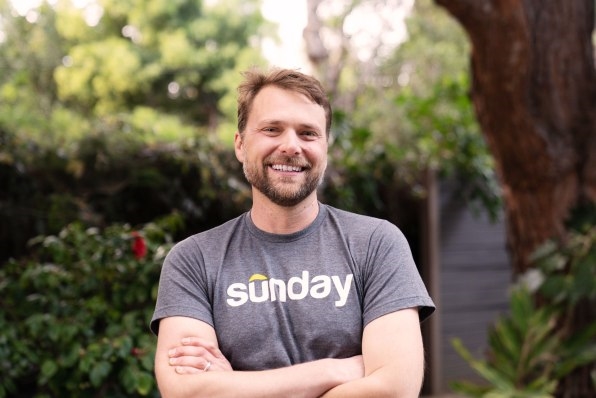
Lewis, 42, thinks they don’t need luck—they need guidance. And he knows of what he speaks. In 2017, the Connecticut native bought a suburban house in Colorado that seemed picture perfect for him, his wife, their three kids, and their dog. He was excited about having outdoor space for his kids to roam and play—until he began looking more closely into the products he needed to repair and maintain it.
Inspecting rows of fertilizers, pesticides, and herbicides on the shelves of his local big box store, Lewis quickly found himself muddled by the chemical-drenching programs proffered by the big players in lawn care. He thought, This feels really wrong. “You’re going to put on about five times the amount of pesticides per acre than an industrial farm does,” he says. “That’s like taking Vicodin every day in case you get a backache.”
A serial entrepreneur—the former mechanical engineer had successfully launched a healthy snack-food company, Quinn Foods, with his wife in 2010—Lewis saw both a problem and an opportunity staring back from those gardening shelves.
As he began diving into the American gardening market, his research showed one consistent emotion that people felt when it came to caring for their lawns: intimidation. “The universal truth that came out of that,” he says of those early months literally digging into the topic, “was that nobody knows anything about lawn and garden care. And they’ve kind of bought into this idea that they’re supposed to know, that they’re in some way deficient.”
Enter Sunday—named for the day of the week when most homeowners turn their attention to their lawns—a company that Lewis and his brother, Trent, launched in 2019 with five employees and a mission to take both the mystery and the avalanche of pesticides out of lawn care. With Sunday, the Lewis brothers are attempting to create what might be called the Netflix of gardening: a subscription service where customers get mailed specific products based on their location, soil, weather, and landscape, with easy-to-follow instructions meant to turn their lawns into country club–worthy pastures.
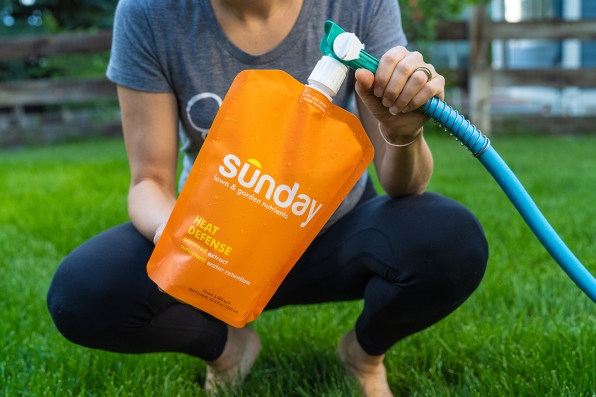
The company’s product line has grown to 65 SKUs and includes ones developed to help lawns survive increased heat and drought wrought by climate change, to increase biodiversity, and to reduce maintenance time. “The opportunity here wasn’t just to clean up the yard,” Lewis says. “It was also to empower people.”
Today, the company’s offerings are also available in Lowe’s, Walmart, and Target, though in terms of market share, Sunday is still very much the David to the sector’s two Goliaths, Scott’s and TruGreen. (“To be honest, they’ve been very effective at squashing everyone else,” Lewis says.) But he feels that growing concern about the climate and ecological harmony, particularly among the growing class of millennial homeowners, has carved out an opening for his eco-friendly, organic, pesticide-averse products. Lewis says “we definitely trend younger in our demographics,” which he puts in the “hundreds of thousands,” though he won’t release hard data or revenue figures. “Compared to other brands in the space, we have a long tail.”
Like our lawns, there’s room to grow. “So far, it’s gone phenomenal,” says David Welsh, VP for fulfillment service delivery for Radial, the King of Prussia, Pennsylvania, company which handles Sunday’s order fulfillment. “They have a unique niche. It’s one of the accounts I am most proud of. There’s a camaraderie there, like we’re both in this together.”
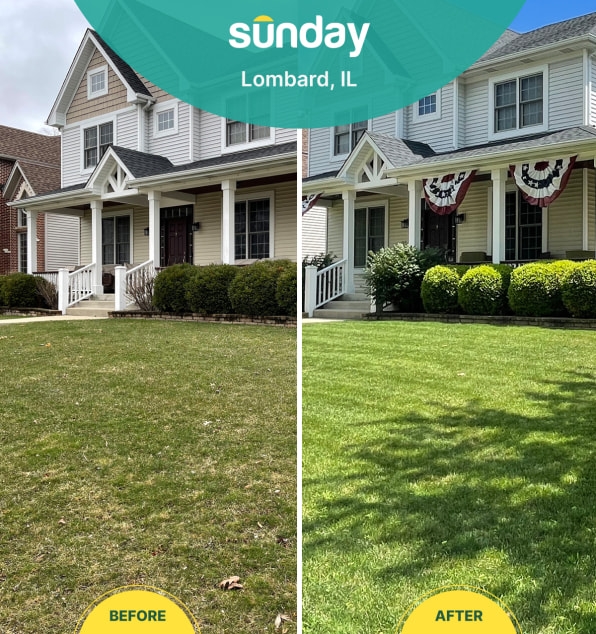
Lewis dodges on whether the plan is to keep the company private or eventually sell it (“I think there’s potential for all kinds of avenues for us,” he says cryptically), but he sees a lot of room to continue to scale. He raised a $50 million funding round in the fall of 2021 to help do just that. “The opportunity of a Sunday to redefine the American yard and become the name in this space is really large,” he says. “We have a long way to go and a lot of work to do. But that’s what we’re aiming for.”
Gentlemen, start your mowers.
(19)

